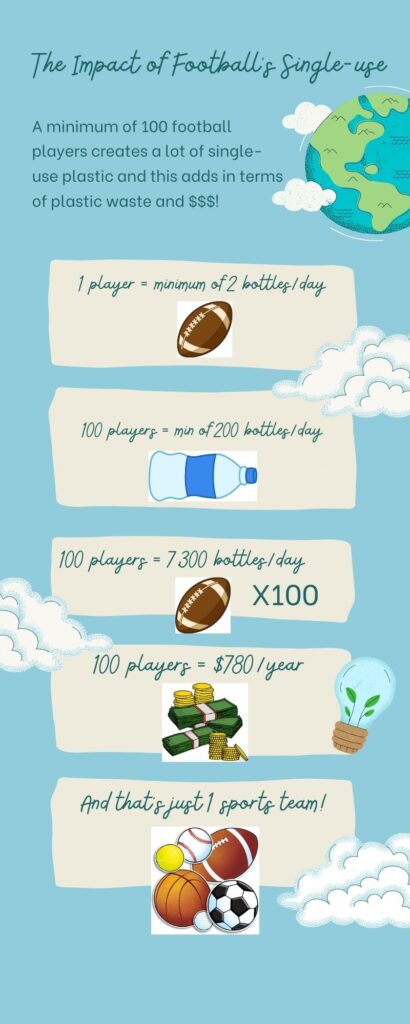“Make the environmental choice the convenient choice”
– Diana Biesecker
No matter our justification, you are probably not alone in your reasoning. Single-use plastic has become a prevalent part of our everyday lives and this was by no mistake.
Single-use plastic being bad for the environment is nothing new. But with the pressure to switch to a more environmentally conscious choice, water bottle marketing companies have to be very meticulous in their marketing tactics to ensure consumers desire it.
A peer-reviewed study counters the water bottle industry’s tactic of framing tap water as a health concern by stating “under the…[EPA], municipal tap water is subject to more rigorous standards with more frequent monitoring than bottled water” (Saylor, A., L.S., & Amberg, S., 2011). “EPA regulations require fast reporting to the state when a health concern arises within a municipal water supply”, which is not the case for bottled water (Saylor, A., L.S., & Amberg, S., 2011). Misconceptions around bottled water safety need to be addressed and educated on. “Media attention on “trust-destroying events”, such as outbreaks of illness caused by contaminated tap water, has also weakened public trust in municipal water supplies while falsely inflating confidence in bottled water” (Quoted in Saylor, A., L.S., & Amberg, S., 2011).
Zion Chambers, a Gettysburg football player and frequent user of single-use plastic, believes“non-bottled water is healthier” which is the narrative pushed by these companies to sell their products.
Chambers uses 2 single-use plastic water bottles/day at $3 a case. 2 bottles equals 14 bottles/week, a 24 count case of water plus in two weeks, and 730 bottles/year.
$3 every two weeks may not seem that bad, but that is $78 a year that ends up in a landfill, the ocean, or as litter.
Chambers is not the only football player I have seen with a single-use plastic water bottle regularly. Let’s apply these numbers to the whole football team. A minimum estimate of a college football team is about 100 players. The football team, at a low estimate of two bottles a day, ends up using 200 single-use plastic water bottles a day, 7,300/year, and spends $780/year. “Reusable water bottles are too expensive” (Chambers). But single-use plastic water bottles aren’t?

Environmental protection isn’t enough to get you to rethink your habits but is money?
The commercialization of single-use plastic has deeper roots than you might think. In order to make money, companies have created products and marketed products as convenient and healthier options in order to enhance their economic gain.
So what does this mean for you? Single-use plastic has become a systematic issue; however, we can fix the system. “Advocate, lobby, vote with your dollars, collect trash at the beach if that makes you feel better” (Miller, 2020). Get a reusable water bottle! Use reusable bags! Reuse, reduce, recycle!
Diana Biesecker, the President of GECO, an environmentally conscious club on campus, states that in her personal life she “[makes] the environmental choice the convenient choice”.
Look around you for where you see single-use plastic use problems and think about how you can change your individual actions. If we all start small, we can make a large impact as a community working to protect the environment. Small but mighty actions matter!
Biesecker, Diana, DB. (2021, October). President of Gettysburg College GECO.
Chambers, Zion, ZC. (2021, October). Gettysburg College football player.
Miller, S.R. (2020, SeMiller, S. R. (2020, September 11). How we got conned into drinking bottled water – and how we can stop. The Huffington Post.
Saylor, A., Prokopy, L. S., & Amberg, S. (2011). What’s wrong with the tap?: Examining perceptions of tap water and bottled water at Purdue University. Environmental Management, 48(3), 588-601.